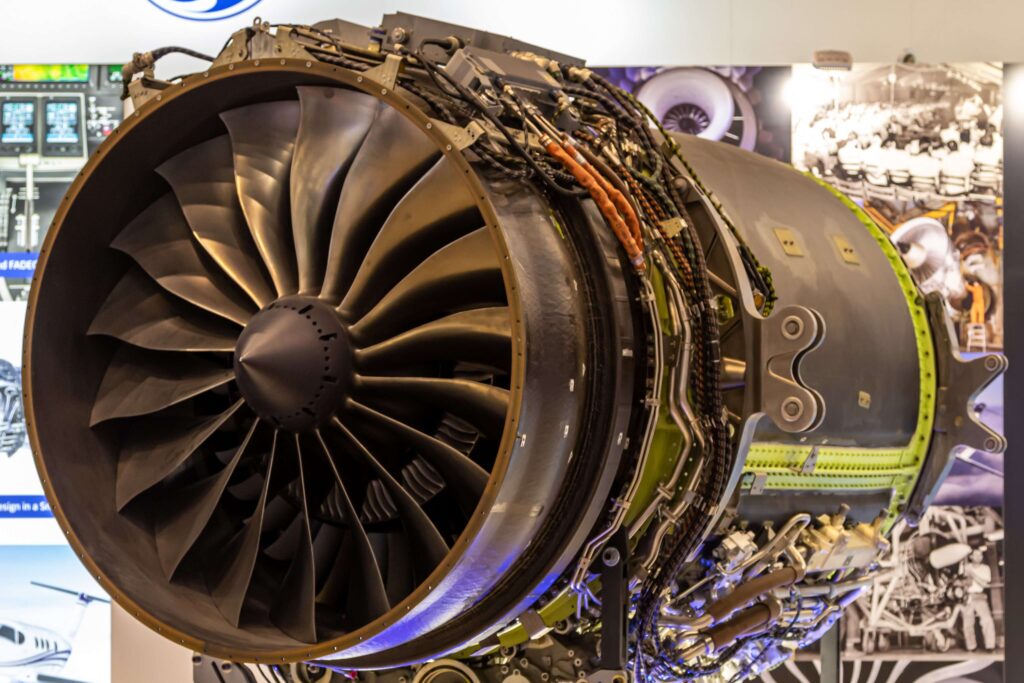American aerospace engineering manufacturer GE Aviation announced has completed testing of its Passport long-range business jet engine using 100% Sustainable Aviation Fuel (SAF).
According to the manufacturer, ground testing was conducted at GE Aviation’s Peebles Test Operations facility in Ohio, in the United States, where the company assessed engine performance and operability while fueled with 100% Sustainable Aviation Fuel (SAF).
Results of the recent testing proved that the new generation turbofan engine is capable of running on lower-carbon alternative jet fuels, made from cooking oil and other waste fats, oils, and greases. GE Aviation believes that business jets powered with the Passport engine can help customers to meet their sustainability goals and reduce CO2 emissions in flight.
“Preliminary test results of the Passport engine are favorable, with the engine performing similarly to when it runs on petroleum-based jet fuel,” GE Aviation wrote in its statement dated May 23, 2022. “As our testing shows, the Passport engine, like all GE engines, can operate on approved Sustainable Aviation Fuel today and in the future.”
The Passport engine, which entered service in 2013, was developed to power large category business jets such as the ultra-long-range Bombardier Global 7500 and the Global 8000. According to GE Aviation, the Passport engine can produce between 14,000 and 20,000-pounds of thrust and consumes 3% less fuel when compared to other engines operating in the 18,000-pound thrust class.
“Blisk fan blades, a high-efficiency compression system, rich-burn combustor, proprietary turbine system, and high-efficiency mixer help enable the Passport engine’s improved fuel efficiency,” GE Aviation explained.
Earlier in May 2021, Canadian business aircraft manufacturer Bombardier announced that its newest Global 8000 jet, powered by GE Aviation Passport engines, had managed to reach supersonic speed with sustainable aviation fuel (SAF).

